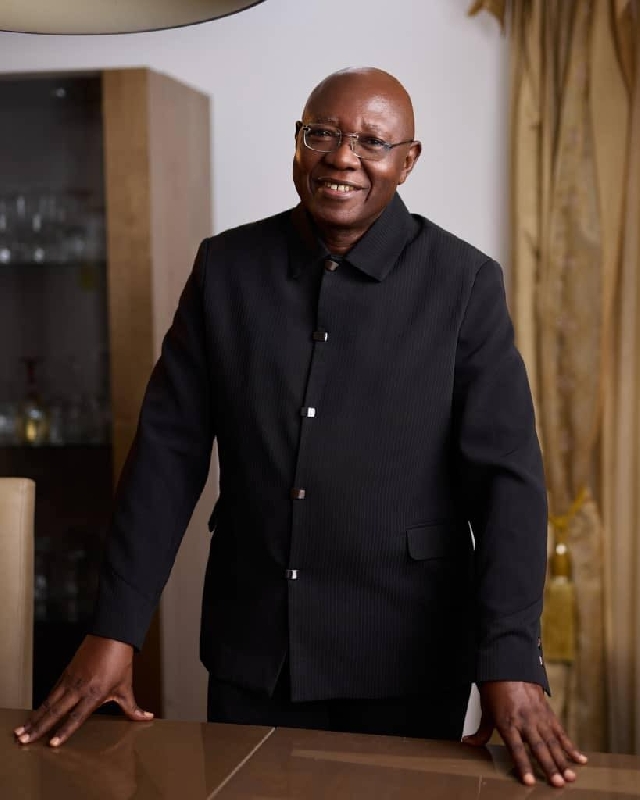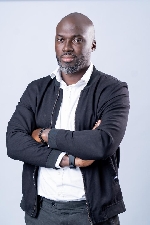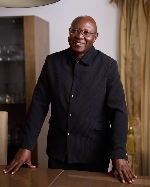When the intellectual community abdicates responsibility, the consequences are dire
 Akwasi Opong -Fosu
Akwasi Opong -Fosu
Are intellectuals the mirror of society, or do they hold the mirror for society to self-reflect?
This profound question goes to the heart of what we expect from those whose work is to think, question, analyse, and guide society toward clarity.
Intellectuals are not merely educated individuals.
They are meant to be the conscience of society—the ones who interrogate power, expose contradictions, deepen public understanding, and help the nation to think.
But when intellectuals themselves descend into the very partisanship and emotional excess they are supposed to critique, society loses its compass.
The recent confrontation between Dr George Domfeh and Prof Ransford Gyampo is more than a televised disagreement. It is a symbol of a wider and more worrying trend: the erosion of intellectual responsibility in Ghana’s public space.
Intellectuals as Mirrors of Society
Intellectuals naturally reflect the society that produces them.
They are shaped by the same political tensions, tribal loyalties, frustrations, and national anxieties that influence ordinary citizens.
When society becomes polarised, intellectuals may mirror that polarisation.
When political discourse becomes shallow, emotional, and confrontational, they may also be swept into that rhythm.
This is why the Domfeh–Gyampo incident resonated so sharply. Instead of elevating national conversation, the professors mirrored the worst excesses of our current political climate—anger, suspicion, and partisan combativeness.
It showed that even the academy is not immune to the political heat that is consuming the nation.
Intellectuals as Holders of the Mirror
But the higher calling of intellectuals is not merely to reflect society. It is to hold the mirror up to society so that it can see itself clearly.
This is the tradition that defines the world’s most transformative thinkers:
• Kwame Nkrumah, whose philosophical clarity shaped Africa’s political awakening.
• Nelson Mandela, who used moral courage and reflective leadership to heal a nation.
• Amílcar Cabral, who insisted that liberation must begin with intellectual honesty.
• Frantz Fanon, who exposed the psychological effects of oppression with piercing insight.
• Rev. Fr. Gustavo Gutiérrez, who linked faith, justice, and liberation for the marginalised.
• Wole Soyinka, whose writings confront tyranny with intellectual force.
• Chinua Achebe, who held a mirror to African identity, power, and postcolonial contradictions.
These figures did not mirror society’s weaknesses; they illuminated them.
They challenged complacency, exposed the dangers of unchecked power, and insisted that society must think beyond slogans and partisan noise.
That is the true work of intellectuals.
The Cost When Intellectuals Abdicate Their Responsibility
The Domfeh–Gyampo episode may look like a moment of television drama, but its implications are far-reaching.
1. Normalisation of aggressive partisanship
When professors trade insults and personal attacks on live television, it suggests that passion is superior to reason, and that political loyalty matters more than intellectual discipline.
This sets a harmful standard for younger generations who look to academics for guidance.
2. Collapse of institutional credibility
When their representatives behave like uninformed political activists, public trust in academic institutions declines.
Universities should be sanctuaries of sober, disciplined, evidence-based reasoning—not extensions of partisan battlefields.
3. Loss of intellectual authority
If professors assume the posture of partisan politicians, who is left to provide sober analysis?
Who is left to speak truth to power without fear or favour?
Who remains to defend national interest above party interest?
When intellectuals surrender their neutrality and objectivity, the nation loses one of its strongest safeguards against manipulation and extremism.
4. Generational consequences
Young leaders absorb the tone of national discourse.
If intellectuals model confrontation rather than clarity, emotion rather than evidence, and partisanship rather than principle, the next generation will inherit those habits.
This is how democratic decline becomes generational.
A Gradual but Dangerous Decline
Cultural decline does not arrive suddenly. It creeps in quietly through the choices of individuals who should know better.
Before a society realises it, intellectual dishonesty and moral compromise have become cultural norms.
When that happens:
• public debate loses its seriousness;
• critical thinking is replaced by tribal loyalty;
• institutions weaken from within;
• national progress becomes impossible.
That is the danger Ghana faces if its intellectual community continues to drift from its purpose.
A Call to Responsibility
Ghana needs intellectuals who rise above partisan noise, not sink into it.
Intellectuals who challenge society, not mirror its flaws.
Thinkers who guide, not inflame.
Scholars who stand firm on evidence, ethics, and the national interest.
The next generation is watching.
They will either inherit a culture of reflection, or a culture of reaction.
A culture of truth, or a culture of convenience.
A culture of responsibility, or a culture of spectacle.
The responsibility lies heavily on the intellectual community. And the consequences of failure are deeper than we dare to admit.
-Akwasi Opong-Fosu
Source: Classfmonline.com
Trending Features

2026 budget: Blueprint for transformation or another missed opportunity?
12:32
Ghana’s 2026 budget: Did it deliver on the promised reset?
10:49
When the intellectual community abdicates responsibility, the consequences are dire
16:25
Why are Ghanaian girls still forced to cut their hair? A colonial practice Ghana must re-examine
12:16
The economics of cutting Ghanaian girls’ hair: How a colonial school rule became a modern financial trap
12:08




